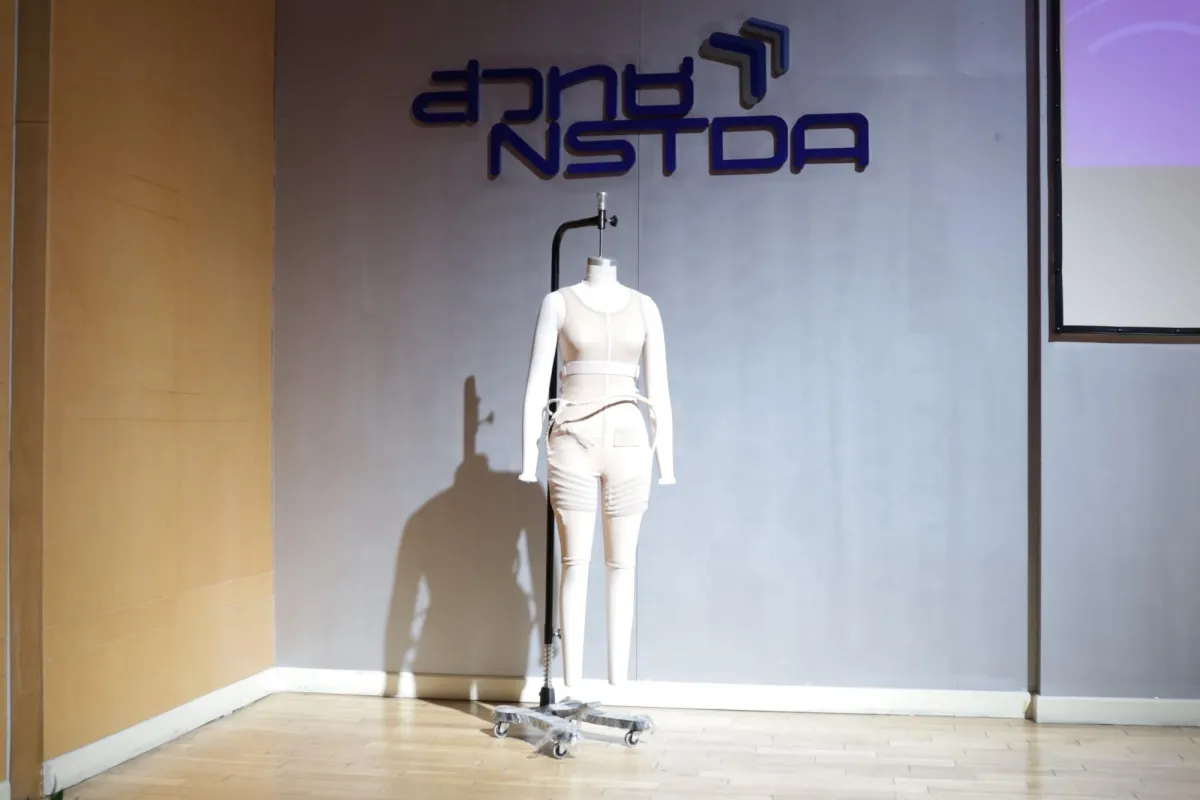
As Thailand transitions into an aging society, the National Science and Technology Development Agency (NSTDA), in collaboration with the National Metal and Materials Technology Center (MTEC) and partner organizations, has developed 'Rachel' – a muscle-strengthening bodysuit aimed at enhancing the day-to-day lives of seniors within the active aging group, who are still full of spirit and vigor.
The concept, according to Dr. Worawaris Korbsiripat, a researcher at MTEC and NSTDA's Living Design Team, is born from the issue faced by most elderly people, including the active aging individuals, that is 'sarcopenia' or muscle mass decrease due to aging. This can impact balance and physical mobility, making it less stable than in their youth, thus increasing the risk of falls or accidents, whether from standing, walking, climbing stairs, or lifting objects. Consequently, many seniors lose confidence in living life, abstaining from various activities, which weakens both their physical and mental health. To counteract this, the research team developed 'Rachel,' a muscle-strengthening bodysuit, to give Thai seniors an option to improve their quality of life.
'Rachel' is designed as an AI-controlled muscle-strengthening suit that uses two types of simulated muscles, working in conjunction, to augment and support the elderly's muscle strength, enabling them to safely perform daily activities.
When the elderly wear the bodysuit, the sensors installed in the suit detect body movements and send data to the AI. The AI then analyzes the wearer's posture and the changes in their kinetic behavior. Subsequently, the AI commands the simulated muscles to apply force to various body parts of the elderly that require assistance, both to stimulate work and to provide appropriate levels of muscle strength enhancement. For instance, the AI-controlled system instructs air to be pumped into the 'Pneumatic artificial muscles' located around the thighs and middle to lower back. This causes the air tubes to inflate and shorten, which works together with the 'elastic muscles' located around the wearer's hips, buttocks, and sacrum. The contraction of the pneumatic artificial muscles stretches the elastic muscles, creating a counterforce that assists the elderly in moving more effortlessly, like in the standing posture.
In addition to this, the inflation of the pneumatic artificial muscles exerts a gentle downward pressure on the front of the thighs and the back, supporting and potentially stimulating the natural muscles to work better, thus maintaining the elderly's muscle strength for as long as possible. Importantly, the research team also emphasized designing the suit to be 'lightweight and comfortable' to wear.
Data updated on April 6, 2023
Source: National Science and Technology Development Agency (NSTDA)
Tel. +66 2564 7000